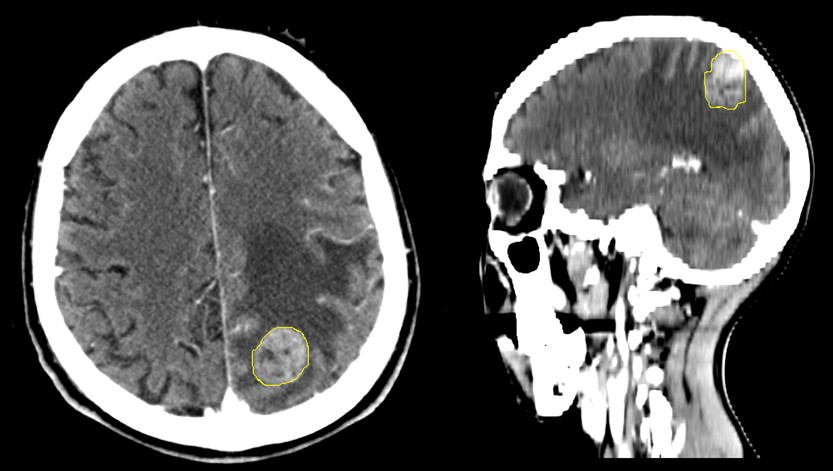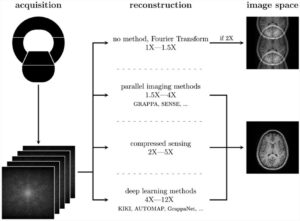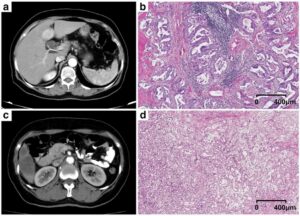In this study, the aim of the authors was to investigate the feasibility and accuracy of differentiating the primary adenocarcinoma (AD) and squamous cell carcinoma (SCC) of non-small-cell lung cancer (NSCLC) for patients with brain metastases (BM) based on radiomics from brain contrast-enhanced computer tomography (CECT) images. Through this study, the authors discovered that brain CECT radiomics are promising in differentiating primary AD and SCC in order to achieve optimal therapeutic management in patients with BM from NSCLC.
Key points
- It is of high clinical importance to identify the primary lesion and its pathological types for patients with brain metastases (BM) to define the prognosis and treatment.
- Few studies had investigated the feasibility and accuracy of differentiating the pathological subtypes of primary non-small-cell lung cancer between adenocarcinoma (AD) and squamous cell carcinoma (SCC) for patients with BM based on radiomics from brain contrast-enhanced CT (CECT) images, although CECT images are often the initial imaging modality to screen for metastases and are recommended on equal footing with MRI for the detection of cerebral metastases.
- Brain CECT radiomics are promising in differentiating primary AD and SCC to achieve optimal therapeutic management in patients with BM from NSCLC with a highest area under the curve (AUC) of 0.828 and an accuracy of 0.758, respectively.
Authors: Ji Zhang, Juebin Jin, Yao Ai, Kecheng Zhu, Chengjian Xiao, Congying Xie & Xiance Jin













